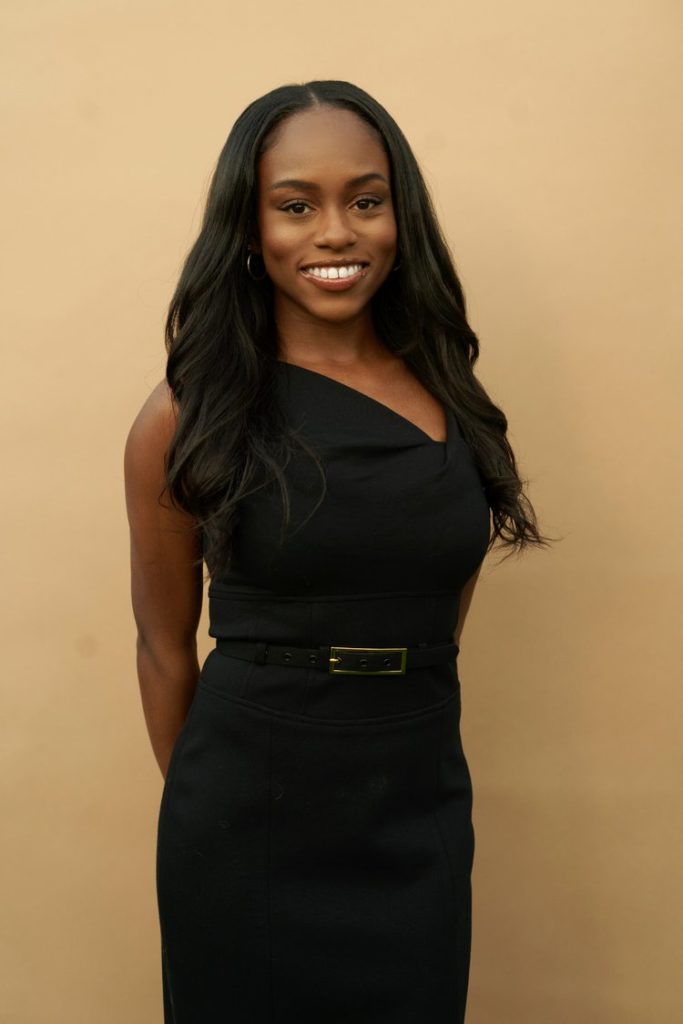
6 Infrared Self-Care Essentials for 2026
February 23, 2026 – Today’s wellness-minded consumers are looking for smarter solutions that work in the background to support comfort, recovery, and overall well-being…

Kristina Johnson is an Account Development Manager who oversees the FemTech & Beauty verticals of Hologenix, a materials science company dedicated to developing products that amplify human potential and improve health and wellness.
CELLIANT®, its flagship technology, is an infrared ingredient brand that enhances textile-based products with health and wellness benefits across performance, recovery, and sleep. CELLIANT’s natural blend of IR-generating minerals is embedded into fibers, yarns, and fabrics, powering bio-responsive textiles utilized by world-class brands in products spanning apparel, sleepwear, bedding, upholstery, uniforms, and medical supplies. Prior to her career at Hologenix, Kristina spent several years in medical and dermatological environments, understanding the nuances of clinical settings and patient care. She earned a Bachelor of Science in Neuroscience from the University of Michigan in Ann Arbor.
Tell us a bit about your background and your projects so far.
I’m the business development lead for FemTech, baby, and beauty here at Hologenix. It’s a new area of focus for us, as we saw a whitespace in the market and felt we could offer infrared wellness solutions for those groups. Once we, as a company, saw that opportunity, I stepped up to fill the role. In terms of projects, we’re working on a lot of opportunities, research and outreach. We know that our scientifically validated claims, such as increased local circulation, improved cellular oxygenation, and better thermoregulation definitely have a lot to offer in these spaces — for example, neonatal blankets, breastfeeding and post-surgical bras as well as panties specifically designed for women during menstruation or menopause. There’s also a lot of research right now on the effects of infrared on skin. So although we don’t have anything specific we can comment on yet, we are getting close to some announcements.
How did you get into this industry? Has it been an easy industry to get into or have you had many challenges?
I have a background in STEM – I studied Neuroscience in college and I also come from a family of two health care practitioners (my dad, a physician and my mom, a hospital system chief executive), so this role is very much in my DNA. There are always challenges, but really, we’ve very quickly seen so much interest and excitement in the FemTech, baby and beauty spaces. I think there’s just a feeling, one that I definitely share, that there’s so much untapped potential in those spaces to do more and infrared technology is an innovation that really fits well. Women’s wellness is such an important issue and I think we’re seeing many brands looking to find ways to improve their products. As far as the real challenges, I think it’s the same things that so many businesses are facing right now which are indicative of the times we’re living in: supply chain challenges and the overall state of the economy.
How long did it take you to be where you are now? What was the biggest obstacle? What are the challenges of being in the industry you are in?
My journey at Hologenix started as a Senior Executive Assistant and now almost two years in, I’m at the point where I’m business development lead and actively pitching potential brand partners for these new spaces we’re in. One of the biggest challenges with starting a new category for Hologenix is just being patient and understanding that things take time. We can clearly see the potential for our technology in FemTech, baby and beauty, but we need to progress in a proper, methodical way so that we ensure we really take the time to validate all the different avenues we could pursue. In other categories, like bedding and performance apparel, it’s probably easier to know the right brand partners for our technology because there are already so many products and we know what works well. This, being a new category, is going to take time to build the right partnerships and then go through all the necessary steps in product development and bringing the technology to market.
What are your biggest achievements to date?
We’re really proud of our scientific approach and backing, so it was a big achievement for us to receive our FDA determination. We still celebrate it every June as a company because it did a lot to validate everything the company was working toward. Another big recent achievement is our new partnership with Medline to begin a new line of CURAD® brand orthopedic products — Innovation in Textiles even called the partnerships “a major medical endorsement for CELLIANT” and I couldn’t agree more.
Along with these, I’d say innovation is at our core and so two other achievements we’re very proud of is the development of pure white CELLIANT, which allowed fabrics powered by CELLIANT to be virtually any color, including brilliant white, and also our development of CELLIANT Viscose with our partner Kelheim Fibres. CELLIANT Viscose is the first in-fiber sustainable viscose infrared solution on the market. Pure white CELLIANT was honored with two recognitions: it was a top ten winner in the Fibers & Insulation Category of ISPO Textrends Fall/Winter 2023/24 and was shortlisted in the Drapers Sustainable Fashion 2022 Awards. CELLIANT Viscose has also been honored as a finalist in the Fibers & Insulation Category for the 2022/23 ISPO Textrends Awards.
What are the projects you are currently working on?
I’m working on finding the right brand partnerships and expanding our research into the FemTech, baby, and beauty spaces. I’m working closely with our Science Advisory Board to look at ways we can expand our language and how we can specifically validate CELLIANT for women’s health and wellness. There’s lots of third-party research about the effects of infrared on detoxification and skin care, for example, but we really rely on our own research before we create our own claims.
Is the #WomenInTech movement important to you and if yes, why?
Yes, of course, it’s more than important – it’s crucial. Tech shapes so many things and informs how society develops so we absolutely need women’s input. The effects of tech are far-reaching and we need to have women involved at all levels of our society is really doing itself a disservice. Women absolutely deserve a seat at the table and to be included as key decision-makers because our experiences and perspectives are vital to creating successful strategies. It’s also important to note, that in health care specifically, we need women to be more involved because historically the data on health has come from, almost exclusively, white males. These data sets are used to create strategies for health and wellness, which don’t apply to all subpopulations, so it’s very important to have women involved to have the right information and data to improve everyone’s quality of life.
What will be the key trends in your industry in the next five years and where do you see them heading?
I think that we’re moving toward a preventative mindset toward health and wellness. Along with empowering women to be in charge of their own health, we will see improvement in women’s knowledge of their own bodies and what is optimum wellness for each individual.
As a result, women are more open to alternative methods of improving their own health so that they aren’t beholden to one medical practitioner. They’re seeking out specialists, and holistic therapies, and are getting more comfortable with ideas like at-home testing (which prior to COVID, perhaps wasn’t as common).
Also, with the overturning of Roe V. Wade, we’ve seen many companies stepping up to protect women’s reproductive rights and provide additional resources or access to safe health services.
Finally, I think people are always looking for ways to get more out of the things they own. So innovation of existing products is always going to be a key trend — if there’s a way to have your everyday items like your clothes or mattress, for example, do the things you expect of them plus wellness benefits passively, that’s a real win.
What is the most important piece of advice you could give to anyone who wants to start a career in this industry?
Know your ‘why’ and be persistent. When things get tough, or you run into significant roadblocks, or even if you begin questioning yourself, you can always go back to your ‘why’. The ‘why’ will be there to ground you; it reminds you of your passion, it gives you that mental boost of confidence in your abilities, and the strong foundation you need to keep going and be successful.
Who are three inspirational women in your respective industry you admire?
1. Kimberly Bryant, CEO of Black Girls Code
2. Kate Ryder, CEO of Maven
3. Maria Molland Selby, CEO of Thinx

This interview was conducted by Marija Butkovic, Digital Marketing and PR strategist, founder, and CEO of Women of Wearables for the Women of Wearables website. She regularly writes and speaks on topics of wearable tech, fashion tech, IoT, entrepreneurship, and diversity. Follow Marija on Twitter @MarijaButkovic and read her stories for Forbes here.

February 23, 2026 – Today’s wellness-minded consumers are looking for smarter solutions that work in the background to support comfort, recovery, and overall well-being…

January 28, 2026 – CELLIANT® is proud to announce the addition of a new peer-reviewed clinical study to its growing research library, bringing the total number of peer-reviewed, published studies…

January 28, 2026 – CELLIANT® is excited to announce our return to ISPA Expo in 2026, taking place March 10–12 in Orlando, Florida. You can find our team at Booth #2043…
To access all of our reports please input your email below.
Contact us at marketing@celliant.com
Thank you for your request. Please download the brochure below.
Sign up for the latest Celliant news and innovations.
REQUEST INFORMATION